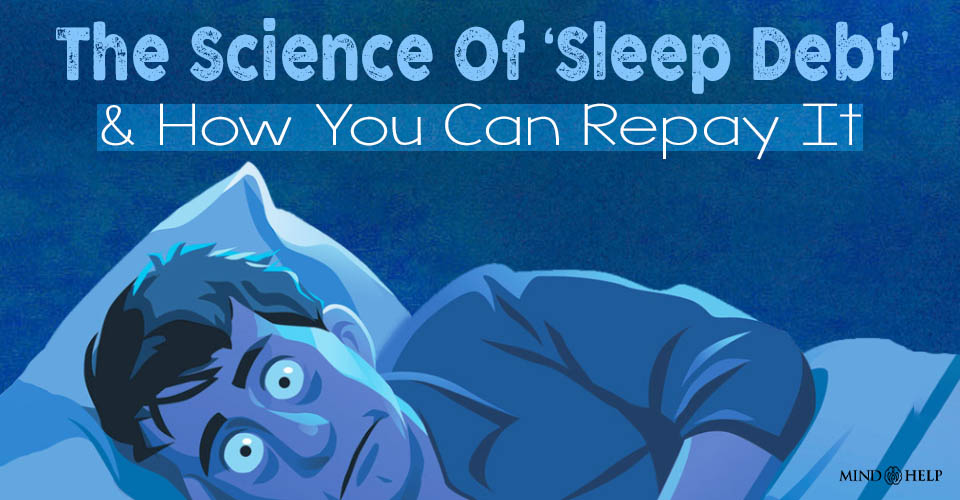While many people assume that losing a few hours of sleep during a busy week is harmless, research in sleep medicine tells a different story. What may feel like grogginess could be a symptom of accumulated sleep debt, a condition with significant consequences for mental, emotional, and physical health. Let’s learn more about it!
Though sleep debt isn’t visible on a clock, the body registers it in measurable ways, and its effects cannot be permanently masked by caffeine or adrenaline. This article explores the concept of sleep debt, its biological and psychological implications, and how to address it using strategies grounded in current scientific evidence.

What Is Sleep Debt?
Sleep debt (or sleep deficit) refers to the difference between the amount of sleep a person needs and the amount they actually get.
According to the National Sleep Foundation and Centers for Disease Control and Prevention (CDC), most adults require 7–9 hours of sleep per night for optimal health and functioning.
Read more here: Beat The Afternoon Slump: 7 Science-Backed Ways To Stay Energized!
When a person consistently gets less than this amount, the body accumulates a deficit, much like financial debt that must eventually be repaid.
For instance, if you sleep 6 hours per night instead of the recommended 8, you accrue a 2-hour sleep debt each night. Over time, this deficit impairs various biological systems, even if you don’t feel the effects immediately.
Many think that they can catch up on sleep over the weekend. I mean, yes but partially can but sleeping in on weekends may temporarily alleviate the sleep deprivation symptoms.
However, studies including those published in Current Biology and Sleep Health indicate that “binge sleeping” does not fully reverse the metabolic, cognitive, or emotional effects of chronic sleep restriction.
Irregular sleep schedules can also disrupt the circadian rhythm, worsening sleep quality over time.
Thus, while extra weekend sleep can be beneficial, it should not be considered a substitute for consistent, adequate nightly sleep.
Some Consequences Of Chronic Sleep Debt
Neglecting sleep doesn’t just lead to transient fatigue it has profound physiological and psychological repercussions. Prolonged sleep deprivation has been linked to the following:
1. Cognitive Impairment
- Reduced attention span and vigilance
- Impaired working memory and executive function
- Slower reaction times
- Decreased problem-solving capacity
2. Emotional and Psychological Effects
- Increased irritability, anxiety, and mood instability
- Elevated risk of depression
- Lower stress tolerance
- Decreased motivation and pleasure in daily activities
3. Physical and Metabolic Health Risks
- Weakened immune system: Higher susceptibility to colds and infections
- Insulin resistance: Increased risk of type 2 diabetes
- Weight gain: Hormonal dysregulation leads to increased appetite and fat storage
- Cardiovascular issues: Elevated blood pressure and greater risk of heart disease
- Endocrine disruption: Elevated cortisol levels and disrupted hormonal cycles
Recognizing The Signs of Sleep Debt

Consider the following sleep debt symptoms, supported by clinical observations:
Cognitive Symptoms
- Difficulty focusing, concentrating, or staying alert
- Forgetfulness or frequent mental lapses
- Poor decision-making or impulsivity
Physical Indicators
- Persistent fatigue despite time in bed
- Headaches or muscle aches
- Weakened immunity and frequent illness
- Noticeable changes in skin appearance or aging
Emotional and Behavioral Signs
- Heightened mood swings or irritability
- Anxiety or depressive symptoms
- Increased caffeine dependence
- Falling asleep during passive activities (e.g., reading or watching TV)
- Experiencing “microsleeps“—brief, involuntary sleep episodes
5 Strategies To Repay Sleep Debt
Although sleep debt is a real physiological burden, it can be reduced gradually through consistent behavioral changes. Here’s how to fix sleep debt and restore healthy sleep patterns:
1. Prioritize a Consistent Sleep Schedule
Maintaining a fixed sleep and wake time, even on weekends helps regulate the circadian rhythm. Irregular schedules impair melatonin production and delay sleep onset.
2. Gradually Increase Sleep Duration
Instead of oversleeping on weekends, aim to increase nightly sleep by 30–60 minutes until your baseline energy and alertness improve. According to studies published in Sleep, small incremental changes are more sustainable and effective.
3. Incorporate Strategic Naps
Short naps (15–30 minutes) can improve alertness and cognitive performance without interfering with nighttime sleep. Avoid napping late in the day.
4. Optimize Sleep Hygiene
Healthy sleep practices can greatly improve sleep quality:
- Eliminate screen time at least one hour before bed
- Keep your sleeping environment cool, dark, and quiet
- Avoid stimulants like caffeine after 2–3 p.m.
- Establish a relaxing bedtime routine (e.g., reading, meditation, or stretching)
5. Get Early Morning Sunlight
Exposure to natural light within one hour of waking helps align your biological clock with the day-night cycle, enhancing melatonin production at night.
Sleep is not a luxury, it’s a biological necessity. Sleep debt is a measurable physiological burden with wide-ranging consequences for mental clarity, emotional stability, metabolic regulation, and immune resilience.
Addressing it requires intentional, science-informed strategies, but the benefits, sharper focus, stronger health, and greater well-being are well worth the effort.
Prioritize sleep the way you prioritize nutrition or exercise. Your body and brain will thank you.
Read more here: Autophagy Fasting: Is It Your Body’s Natural Reset Button?
Frequently Asked Questions (FAQS)
How to fix sleep debt?
1. Eliminate screen time at least one hour before bed
2. Keep your sleeping environment cool, dark, and quiet
3. Avoid caffeine after 2–3 p.m.
3. Establish a relaxing bedtime routine
What is sleep debt?
Sleep debt (or sleep deficit) refers to the difference between the amount of sleep a person needs and the amount they actually get.







